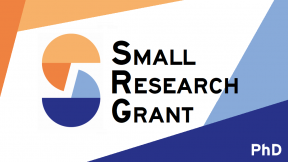Intergenerational social mobility, the likelihood that children will be offered equal opportunities to succeed in life irrespective of their family background and social class, is a characteristic of a fair and fluid society. Aside from its intrinsic interest, more equitable societies are associated with sustainable and inclusive growth and lower income inequality. So, how do countries fare in terms of social mobility? Are the current generations better off compared to their parents and grandparents? Answering these questions for most developing countries remains elusive mainly due to data limitations. Administrative tax records are scarce, while census income data are noisy and prone to measurement error. This project takes a different approach to tackle these questions by relying on educational attainment rather than income as a proxy of social status. Education has the advantage that it is readily available in census surveys and is highly correlated with labour earnings.
The researcher builds a new novel dataset comprising the educational attainment of young adults aged 18-22 and their parents. The dataset is constructed from a large set of harmonised census survey data across 76 low- and middle-income countries, including 20 of the poorest economies in the world, located in Sub-Saharan Africa. Using this massive dataset and harnessing the power of big data, this project derives several comparable statistics that characterise intergenerational mobility in educational attainment across countries and demographic groups. Moreover, these indicators shed light on the heterogeneity of intergenerational mobility across regions, birth cohorts, the size of the urban-rural divide, and the cross-generational gender gap.
Around the world, governments and policy organisations have invested heavily in primary and secondary school education. School completion rates have increased enormously since 1960. Yet, this progress is not equally distributed among all population members. The statistics and analysis will provide valuable insights into the progress of social mobility across and within a wide spectrum of countries and ethnic groups. Policymakers could use this evidence to identify, inter alia, which marginalised groups lag behind and are more likely to be affected by targeted policies. This project's outcomes are particularly relevant to low-income countries including certain sub-Saharan countries that are experiencing considerable population growth. Tailored policies that provide the right incentives to the growing young generations could significantly boost sustainable economic growth.



























































